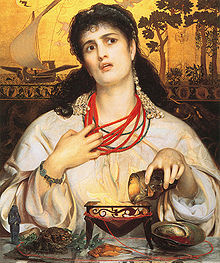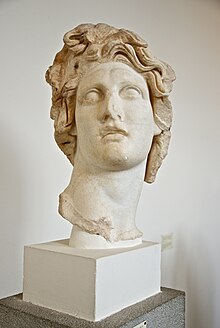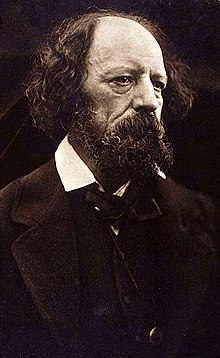Week 16 Lord of the Flies byWilliam Golding
1. Lord of the Flies

Lord of the Flies is a 1954 novel by Nobel Prize-winning English author William Golding. The book focuses on a group of British boys stranded on an uninhabited island and their disastrous attempt to govern themselves.It has been adapted to film twice in English, in 1963 by Peter Brook and 1990 by Harry Hook, and once in Filipino (1976).
The book takes place in the midst of an unspecified nuclear war. Some of the marooned characters are ordinary students, while others arrive as a musical choir under an established leader. With the exception of the choirboys, Sam, and Eric, they appear never to have encountered each other before. The book portrays their descent into savagery; left to themselves on a paradisaical island, far from modern civilization, the well-educated children regress to a primitive state.
William Golding was born September 19, 1911, in Saint Columb Minor, Cornwall, England. In 1935 he started teaching English and philosophy in Salisbury. He temporarily left teaching in 1940 to join the Royal Navy. In 1954 he published his first novel, Lord of the Flies. In 1983, he was awarded the Nobel Prize for Literature. On June 19, 1993, he died in Perranarworthal, Cornwall, England.
Munro's fiction is most often set in her native Huron County in southwestern Ontario. Her stories explore human complexities in an uncomplicated prose style.Munro's writing has established her as "one of our greatest contemporary writers of fiction," or, as Cynthia Ozick put it, "our Chekhov." Munro is the recipient of many literary accolades, including the 2013 Nobel Prize in Literature for her work as "master of the contemporary short story", and the 2009 Man Booker International Prize for her lifetime body of work. She is also a three-time winner of Canada's Governor General's Award for fiction and was the recipient of the Writers' Trust of Canada's 1996 Marian Engel Award, as well as the 2004 Rogers Writers' Trust Fiction Prize for Runaway

3.Deus ex machina is a Latin calque from Greek , meaning 'god from the machine. The term has evolved to mean a plot device whereby a seemingly unsolvable problem is suddenly and abruptly resolved by the inspired and unexpected intervention of some new event, character, ability or object. Depending on how it is done, it can be intended to allow a story to continue when the writer has "painted himself into a corner" and sees no other means to progress the plot, to surprise the audience, to bring the tale to a happy ending, or as a comedic device.
Apollonius of Rhodes, is best known as the author of the Argonautica, an epic poem about Jason and the Argonauts and their quest for the Golden Fleece. The poem is one of the few extant examples of the epic genre and it was both innovative and influential, providing Ptolemaic Egypt with a "cultural mnemonic" or national "archive of images", and offering the Latin poets Virgil and Gaius Valerius Flaccus a model for their own epics. His other poems, which survive only in small fragments, concerned the beginnings or foundations of cities, such as Alexandria and Cnidus – places of interest to the Ptolemies, whom he served as a scholar and librarian at the Library of Alexandria. A literary dispute with Callimachus, another Alexandrian librarian/poet, is a topic much discussed by modern scholars since it is thought to give some insight into their poetry, although there is very little evidence that there ever was such a dispute between the two men. In fact almost nothing at all is known about Apollonius and even his connection with Rhodes is a matter for speculation.Once considered a mere imitator of Homer, and therefore a failure as a poet, his reputation has been enhanced by recent studies, with an emphasis on the special characteristics of Hellenistic poets as scholarly heirs of a long literary tradition writing at a unique time in history.
Medea

Medea's role began after Jason came from Iolcus to Colchis, to claim his inheritance and throne by retrieving the Golden Fleece. In the most complete surviving account, the Argonautica of Apollonius of Rhodes, Medea fell in love with him and promised to help him, but only on the condition that if he succeeded, he would take her with him and marry her. Jason agreed. Finally, Aeëtes made Jason fight and kill the sleepless dragon that guarded the fleece; Medea put the beast to sleep with her narcotic herbs. Jason then took the fleece and sailed away with Medea, as he had promised. Apollonius says that Medea only helped Jason in the first place because Hera had convinced Aphrodite or Eros to cause Medea to fall in love with him. Medea distracted her father as they fled by killing her brother Absyrtus.
In Corinth, Jason abandoned Medea for the king's daughter, Glauce. Medea took her revenge by sending Glauce a dress and golden coronet, covered in poison. This resulted in the deaths of both the princess and the king, Creon, when he went to save her. It is said that two of Medea's sons, Mermeros and Pheres, helped their mother's revenge and were murdered by Corinthians for their crime. According to the tragic poet Euripides, Medea continued her revenge, murdering two of her children, Tisander and Alcimenes, herself. Only one son, Thessalus, survived. Afterward, she left Corinth and flew to Athens in a golden chariot driven by dragons sent by her grandfather Helios, god of the sun.
 Helios was the personification of the Sun in Greek mythology. He is the son of the Titan Hyperion and the Titaness Theia , also known as Euryphaessa and brother of the goddesses Selene, the moon, and Eos, the dawn.Helios was described as a handsome titan crowned with the shining aureole of the Sun, who drove the chariot of the sun across the sky each day to earth-circling Oceanus and through the world-ocean returned to the East at night. In the Homeric hymn to Helios, Helios is said to drive a golden chariot drawn by steeds ; and Pindar speaks of Helios's "fire-darting steeds." Still later, the horses were given fire related names: Pyrois, Aeos, Aethon, and Phlegon. As time passed, Helios was increasingly identified with the god of light, Apollo. However, in spite of their syncretism, they were also often viewed as two distinct gods/titan (Helios was a Titan, whereas Apollo was an Olympian). The equivalent of Helios in Roman mythology was Sol.
Helios was the personification of the Sun in Greek mythology. He is the son of the Titan Hyperion and the Titaness Theia , also known as Euryphaessa and brother of the goddesses Selene, the moon, and Eos, the dawn.Helios was described as a handsome titan crowned with the shining aureole of the Sun, who drove the chariot of the sun across the sky each day to earth-circling Oceanus and through the world-ocean returned to the East at night. In the Homeric hymn to Helios, Helios is said to drive a golden chariot drawn by steeds ; and Pindar speaks of Helios's "fire-darting steeds." Still later, the horses were given fire related names: Pyrois, Aeos, Aethon, and Phlegon. As time passed, Helios was increasingly identified with the god of light, Apollo. However, in spite of their syncretism, they were also often viewed as two distinct gods/titan (Helios was a Titan, whereas Apollo was an Olympian). The equivalent of Helios in Roman mythology was Sol.4.Initiation and Quest
Initiation is a rite of passage marking entrance or acceptance into a group or society. It could also be a formal admission to adulthood in a community or one of its formal components. In an extended sense it can also signify a transformation in which the initiate is 'reborn' into a new role. Examples of initiation ceremonies might include Hindu diksha, Christian baptism or confirmation, Jewish bar or bat mitzvah, acceptance into a fraternal organization, secret society or religious order, or graduation from school or recruit training. A person taking the initiation ceremony in traditional rites, such as those depicted in these pictures, is called an initiate.
 Quest serves as a plot device in mythology and fiction: a difficult journey towards a goal, often symbolic or allegorical. Tales of quests figure prominently in the folklore of every nation and ethnic culture. In literature, the object of a quest requires great exertion on the part of the hero, who must overcome many obstacles, typically including much travel. The aspect of travel allows the storyteller to showcase exotic locations and cultures (an objective of the narrative, not of the character).The object of a quest may also have supernatural properties, often leading the protagonist into other worlds and dimensions. The moral of a quest tale often centers on the changed character of the hero.
Quest serves as a plot device in mythology and fiction: a difficult journey towards a goal, often symbolic or allegorical. Tales of quests figure prominently in the folklore of every nation and ethnic culture. In literature, the object of a quest requires great exertion on the part of the hero, who must overcome many obstacles, typically including much travel. The aspect of travel allows the storyteller to showcase exotic locations and cultures (an objective of the narrative, not of the character).The object of a quest may also have supernatural properties, often leading the protagonist into other worlds and dimensions. The moral of a quest tale often centers on the changed character of the hero. 5.Hierarchy (from the Greek hierarchia, "rule of a high priest", from hierarkhes, "leader of sacred rites") is an arrangement of items (objects, names, values, categories, etc.) in which the items are represented as being "above," "below," or "at the same level as" one another.
5.Hierarchy (from the Greek hierarchia, "rule of a high priest", from hierarkhes, "leader of sacred rites") is an arrangement of items (objects, names, values, categories, etc.) in which the items are represented as being "above," "below," or "at the same level as" one another.A hierarchy can link entities either directly or indirectly, and either vertically or diagonally. The only direct links in a hierarchy, insofar as they are hierarchical, are to one's immediate superior or to one of one's subordinates, although a system that is largely hierarchical can also incorporate alternative hierarchies. Indirect hierarchical links can extend "vertically" upwards or downwards via multiple links in the same direction, following a path. All parts of the hierarchy which are not linked vertically to one another nevertheless can be "horizontally" linked through a path by traveling up the hierarchy to find a common direct or indirect superior, and then down again. This is akin to two co-workers or colleagues; each reports to a common superior, but they have the same relative amount of authority. Organizational forms exist that are both alternative and complementary to hierarchy. Heterarchy is one such form.
 6. Satan also called Lucifer and Mephistopheles is a figure appearing in the texts of the Abrahamic religions who brings evil and temptation, and is known as the deceiver who leads humanity astray. Some religious groups teach that he originated as an angel, or something of the like, who used to possess great piety and beauty, but fell because of hubris, seducing humanity into the ways of falsehood and sin, and has power in the fallen world.
6. Satan also called Lucifer and Mephistopheles is a figure appearing in the texts of the Abrahamic religions who brings evil and temptation, and is known as the deceiver who leads humanity astray. Some religious groups teach that he originated as an angel, or something of the like, who used to possess great piety and beauty, but fell because of hubris, seducing humanity into the ways of falsehood and sin, and has power in the fallen world.In the Hebrew Bible and the New Testament, Satan is primarily an accuser and adversary, a decidedly malevolent entity, also called the devil, who possesses abhorrent qualities.
Although Satan is generally viewed as having negative characteristics, some groups have very different beliefs. In Theistic Satanism, Satan is considered a deity who is either worshipped or revered. In LaVeyan Satanism, "Satan" is a symbol of virtuous characteristics and liberty
10 inspiring commencement speeches about creativity and courage
In the Venn diagram of storytelling methods, the commencement speech is part poetry, part cat poster. The best commencement speeches transcend the limitations of the genre to provide inspiration for all of us. Below, read 10 great commencement speeches by writers and artists on how to live with more creativity and courage.
http://blog.ed.ted.com/2015/05/18/10-inspiring-commencement-speeches-about-creativity-and-courage/
The scene of The Blind Side
Courage & Honor
https://www.youtube.com/watch?v=xVbSQpoFDb0

In this inspirational scene from the Blind Side Michael Oher dissects a lesson about the charge of the light brigade as he is taught by his adopted father. This leads him to a great idea for his paper. Michael comes to a very clever conclusion about the importance of having a healthy dose of both courage and honor. Here is the full Blind Side speech below:
“Courage is a hard thing to figure. You can have courage based on a dumb idea or mistake, but you’re not supposed to question adults, or your coach or your teacher, because they make the rules. Maybe they know best, but maybe they don’t. It all depends on who you are, where you come from. Didn’t at least one of the six hundred guys think about giving up, and joining with the other side? I mean, valley of death that’s pretty salty stuff. That’s why courage it’s tricky. Should you always do what others tell you to do? Sometimes you might not even know why you’re doing something. I mean any fool can have courage. But honor, that’s the real reason for you either do something or you don’t. It’s who you are and maybe who you want to be. If you die trying for something important, then you have both honor and courage, and that’s pretty good. I think that’s what the writer was saying, that you should hope for courage and try for honor. And maybe even pray that the people telling you what to do have some, too.” – Michael Oher
 Michael Jerome Oher (May 28, 1986) is an American football offensive tackle for the Carolina Panthers of the National Football League (NFL). He was drafted by the Baltimore Ravens in the first round of the 2009 NFL Draft and has also played for the Tennessee Titans. He played college football for the University of Mississippi.
Michael Jerome Oher (May 28, 1986) is an American football offensive tackle for the Carolina Panthers of the National Football League (NFL). He was drafted by the Baltimore Ravens in the first round of the 2009 NFL Draft and has also played for the Tennessee Titans. He played college football for the University of Mississippi.
Oher earned unanimous All-American honors at Mississippi, and was drafted by the Baltimore Ravens in the first round of the 2009 NFL Draft. His life through his final year of high school and first year of college is one of the subjects of Michael Lewis' 2006 book, The Blind Side: Evolution of a Game, and was featured in the Academy Award-winning 2009 film The Blind Side.
The Charge of the Light Brigade was a charge of British light cavalry led by Lord Cardigan against Russian forces during the Battle of Balaclava on 25 October 1854, in the Crimean War. Lord Raglan, overall commander of the British forces, had intended to send the Light Brigade to prevent the Russians removing captured guns from overrun Turkish positions, a task well-suited to light cavalry. However, due to miscommunication in the chain of command, the Light Brigade was instead sent on a frontal assault against a different artillery battery, one well-prepared with excellent fields of defensive fire.
Although the Light Brigade reached the battery under withering direct fire and scattered some of the gunners, the badly mauled brigade was forced to retreat immediately. Thus, the assault ended with very high British casualties and no decisive gains.
The events are best remembered as the subject of Alfred, Lord Tennyson's narrative poem "The Charge of the Light Brigade" (1854). Published just six weeks after the event, its lines emphasis the value of the cavalry in bravely carrying out their orders, regardless of the obvious outcome. Blame for the miscommunication has remained controversial, as the original order itself was vague, and the officer who delivered the written orders, with some verbal interpretation, died in the first minute of the assault.
The poem
The Charge of the Light Brigade
BY ALFRED, LORD TENNYSON
Alfred Tennyson was Poet Laureate of Great Britain and Ireland during much of Queen Victoria's reign and remains one of the most popular British poets.
Tennyson excelled at penning short lyrics, such as "Break, Break, Break", "The Charge of the Light Brigade", "Tears, Idle Tears", and "Crossing the Bar". Much of his verse was based on classical mythological themes, such as Ulysses, although In Memoriam A.H.H. was written to commemorate his friend Arthur Hallam, a fellow poet and student at Trinity College, Cambridge, after he died of a stroke at the age of 22.Tennyson also wrote some notable blank verse including Idylls of the King, "Ulysses", and "Tithonus". During his career, Tennyson attempted drama, but his plays enjoyed little success. A number of phrases from Tennyson's work have become commonplaces of the English language, including "Nature, red in tooth and claw" (In Memoriam A.H.H.), "'Tis better to have loved and lost / Than never to have loved at all", "Theirs not to reason why, / Theirs but to do and die", "My strength is as the strength of ten, / Because my heart is pure", "To strive, to seek, to find, and not to yield", "Knowledge comes, but Wisdom lingers", and "The old order changeth, yielding place to new". He is the ninth most frequently quoted writer in The Oxford Dictionary of Quotations.




0 個意見:
張貼留言
訂閱 張貼留言 [Atom]
<< 首頁